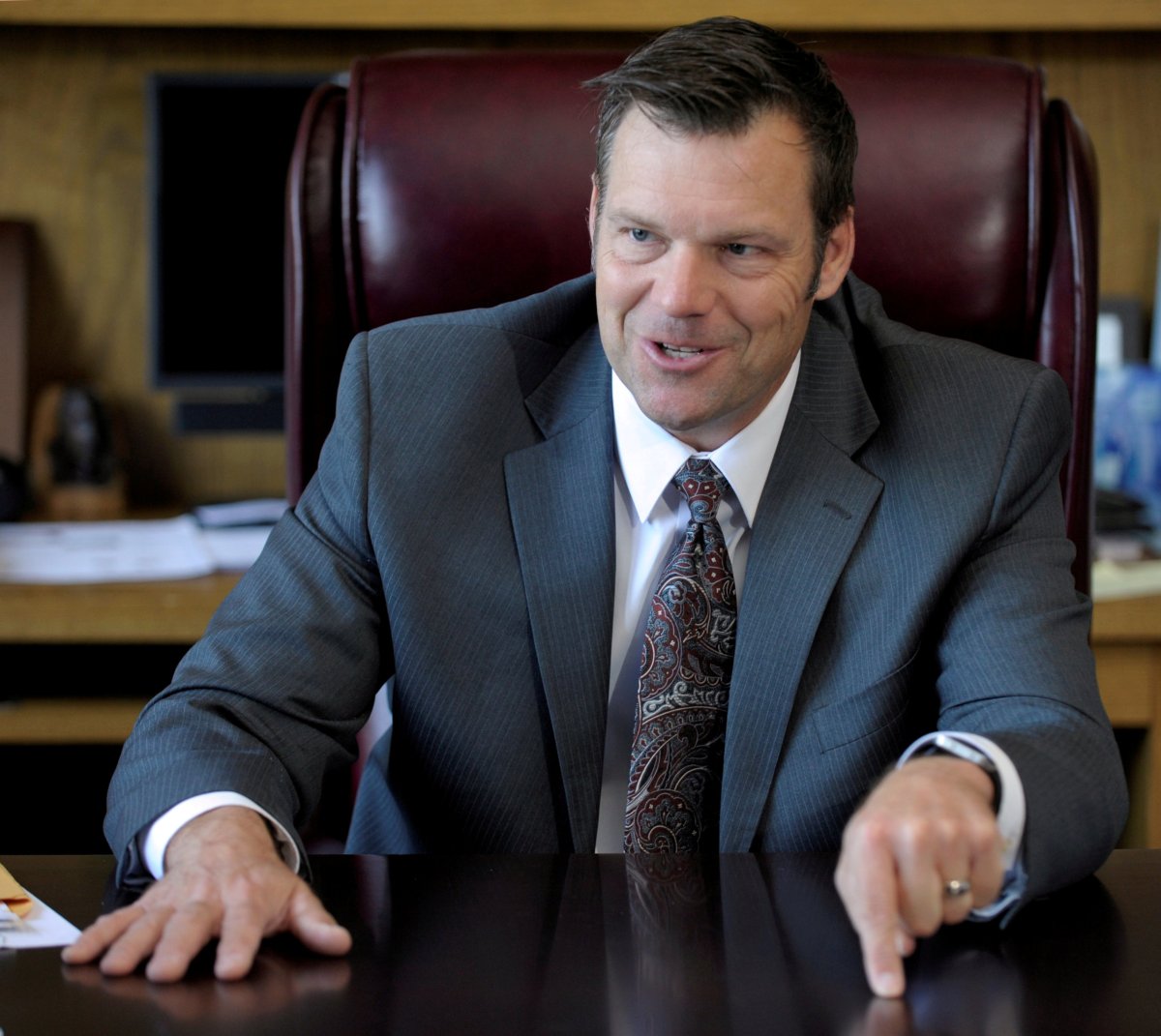By Kevin Murphy
KANSAS CITY, Kan. (Reuters) – Lawyers presented closing arguments on Monday in the trial of a legal challenge to a Kansas law requiring proof of U.S. citizenship to register to vote, with opponents calling the statute illegal and supporters deeming it necessary to fight voter fraud.
The seven-day, non-jury trial in Kansas City drew to a conclusion as U.S. District Judge Julie Robinson said she was taking the case under submission and would not render a decision for at least a month.
The Kansas law, which took effect in 2013, requires individuals to present a U.S. passport, birth certificate or other proof of citizenship in order to register to vote. Several other Republican-led state legislatures have enacted similar measures in recent years.
Critics argue that voter ID laws are designed to suppress groups of the electorate that tend to support the Democratic Party, such as the young and minorities. Proponents say they help ensure the integrity of elections.
The American Civil Liberties Union filed suit in February 2016 challenging the Kansas law as a violation of the National Voter Registration Act, which allows individuals to register to vote at state motor vehicles offices with no more documentation than they would need to obtain a driver’s license.
Kansas Secretary of State Kris Kobach, a Republican who is running for governor and is named as a defendant in the lawsuit, argued in court that 129 non-U.S. citizens had voted or registered to vote in Kansas since 2000, a number he said was merely the “tip of the iceberg.”
He cited expert witnesses who testified for the state that extrapolations from the 129 known cases could mean a total number of illegally registered voters ranging from 1,067 to 33,001 in Kansas, given the state’s population.
But lawyers for the ACLU contended that all but a handful of those 129 people were registered due to clerical errors, misunderstandings or other unintentional reasons, and that most did not vote.
“That iceberg, upon closer inspection, is an ice cube,” ACLU lead attorney Dale Ho said in his closing argument. “There is no evidence it is in the thousands, as Secretary Kobach asserts.”
Kobach countered that even a small number of illegal voters could throw the outcome of an election. He also argued that the vast majority of Kansas residents have and can readily obtain the documents they need under the ID law.
“There is no evidence that people who are U.S. citizens are prevented from voting by virtue of the Kansas law,” Kobach said in closing.
The ACLU has estimated that more than 35,000 citizens in Kansas were blocked from registering to vote from 2013 to 2016.
Kobach previously served on a commission appointed by U.S. President Donald Trump to investigate voter fraud. Trump contended, without evidence, that millions of people voted illegally in the 2016 presidential election he won. The commission was shut down in January. Most state election officials and election law experts say that U.S. voter fraud is rare.
Lawmakers in 23 states have imposed new voting restrictions since 2010, according to the Brennan Center for Justice at New York University School of Law.
This year, lawmakers in eight states have introduced bills imposing photo identification requirements for voting, but in two of those states the bills failed to win enough support for passage, the Brennan Center said.
(Reporting by Kevin Murphy in Kansas City, Kan.; Additional reporting by ALex Dobuzinskis in Los Angeles; Editing by Steve Gorman and Leslie Adler)



















